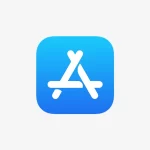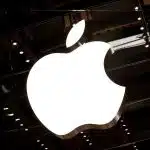Apple’s latest iPhone 16 may not reach Indonesian shelves as the company struggles with local regulatory requirements. The Indonesian Ministry of Industry recently confirmed that Apple has not yet renewed its TKDN (Domestic Content Requirement) certification, which is essential for selling electronic products in the country. Additionally, Apple has reportedly fallen short of its agreed-upon investment commitment, further complicating matters.
Regulatory Requirements and Investment Shortfall
According to Industry Minister Agus Gumiwang Kartasasmita, Apple’s previous TKDN certification expired, and the company must renew it before resuming sales. The TKDN policy mandates that electronic products sold in Indonesia must contain at least 40% local content. To comply, Apple has opted for the innovation development scheme, which focuses on fostering local technological growth. However, Apple’s investment has only reached 1.48 trillion rupiah (USD 94.53 million), falling short of its 1.71 trillion rupiah commitment.

Minister Kartasasmita emphasized that Apple’s compliance is essential to ensure fairness for investors who adhere to Indonesian laws. In addition to certification, Apple also faces pressure to deliver on its investment promises, which include expanding its Apple Academy presence. Currently, the company has three academies in Indonesia, with plans for a fourth in Bali.
Public Reactions and Online Debate
The potential ban has sparked mixed reactions among Indonesian netizens. While some users support the government’s stance, citing the need for strict adherence to local requirements, others criticize it as bureaucratic overreach. One user on X remarked, “Too much bureaucracy, Apple could invest elsewhere.” Another echoed this sentiment, stating that importing the iPhone from neighboring countries like Singapore might be a cheaper alternative.
Despite these challenges, Apple remains a popular brand in Indonesia, and local fans often travel to Singapore or Malaysia to purchase the latest products. If the company fulfills its investment and certification obligations, the iPhone 16 could eventually enter the Indonesian market, appeasing eager customers.
Apple’s Path Forward in Indonesia
For now, Apple’s path to re-entering the Indonesian market hinges on meeting the government’s demands. While Apple has made strides in supporting local innovation, the company must address these outstanding requirements to continue its operations in Indonesia. The situation underscores the balancing act multinational companies face when navigating regulatory landscapes in emerging markets.












